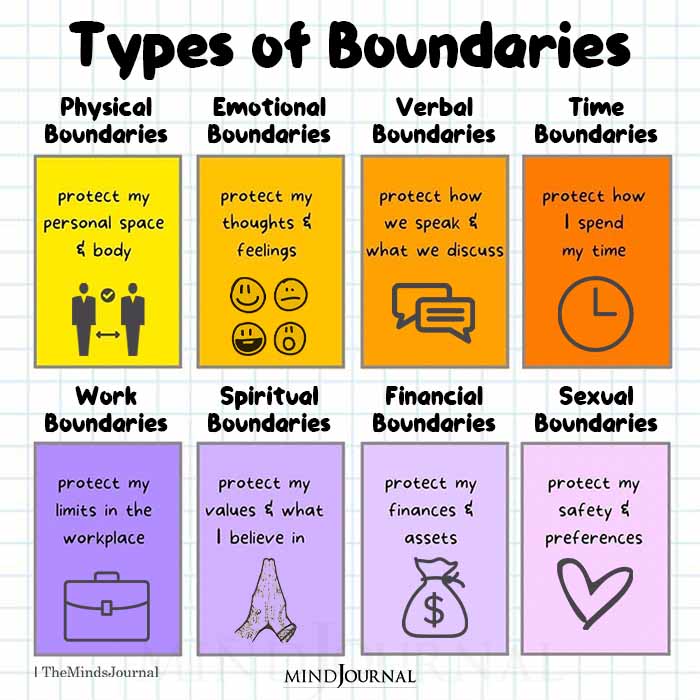
Menu

If you’ve ever felt like you absorb the emotions of others a little too easily, or find yourself overwhelmed in crowded spaces, chances are, you might be an empath. Being an empath is a beautiful gift; it means you’re deeply attuned to the feelings and energies of the people around you.
But, let’s be real, it can also feel like a bit of a curse sometimes, especially when you end up carrying everyone else’s emotional baggage along with your own. That’s exactly why setting boundaries is not just important—it’s essential for your well-being.
Now, you might be wondering, “How exactly do I set these boundaries when I can barely distinguish between my own emotions and someone else’s?” Don’t worry, you’re not alone in this. Many empaths struggle with the same question, and that’s precisely what we’re here to talk about today.
If you want to learn how to set boundaries as an empath, follow along.
Empathy is the ability to put yourself in someone else’s shoes, to feel what they’re feeling as if those emotions were your own. Sounds pretty straightforward, right? Well, when it comes to empaths, it’s like empathy on steroids. Being an empath means you don’t just understand what someone is going through; you actually feel it—emotionally and sometimes even physically.
Here’s something fascinating you might not know, as well: emphatic people have physically different brains than the average person according to a study from Neuroimage. Cool, huh? It’s almost like a superpower.

Imagine walking into a room and instantly feeling a cocktail of emotions—stress, joy, anxiety, excitement—without anyone saying a word to you. That’s a day in the life of an empath. It’s not about actively trying to sense how people are feeling; it just happens. This heightened sensitivity to the emotions and energies of those around us can be overwhelming, but it’s also what makes empaths incredibly compassionate, understanding, and nurturing souls.
Now, being this tuned in to others’ emotions isn’t always a walk in the park. It can lead to emotional fatigue, stress, and even burnout if not managed properly. Imagine absorbing every stray emotion in a crowded place or feeling the weight of a loved one’s distress as if it were your own.
It’s exhausting, and it can make it hard to figure out where their feelings end and yours begin. This is why setting boundaries is so crucial for empaths—it’s about protecting your energy so you can continue to be that compassionate person without burning out.
It’s also important to distinguish between being an empath and simply being sympathetic. Sympathy involves feeling compassion for someone, but from a distance. You feel for them but not with them. Empaths, on the other hand, experience a direct emotional echo of what others are feeling. This isn’t something you can turn off or on; it’s a part of who you are.
Understanding this distinction and the challenges that come with being an empath is the first step in learning how to manage your unique gifts effectively. It’s not about changing who you are but rather about finding ways to navigate the world without feeling overwhelmed by it. And trust me, once you start setting those boundaries, you’ll begin to see your empathy not as a burden but as the gift it truly is.
I know, I know, the word “boundaries” might sound a bit formal or even harsh, especially for folks who thrive on being open and connected. But hear me out—setting boundaries is not about building walls around yourself; it’s about drawing lines in the sand that protect your emotional well-being. And when you’re an empath, this isn’t just important; it’s essential.
Think of yourself as a sponge that absorbs not just water but emotions. Without boundaries, you’re soaking up everything—good, bad, and everything in between—until you’re so heavy with other people’s feelings that you can’t function. That’s no way to live, right? Boundaries help you wring out that sponge so you can stay light and buoyant, able to float through life’s ups and downs without drowning in the emotional overflow of those around you.
For empaths, our energy is our most precious resource. It’s what allows us to connect, to feel, and to heal—not just others, but ourselves too. But there’s only so much to go around. Without boundaries, we risk giving away all our energy until we’re left feeling drained, exhausted, and even resentful. And that’s not good for anyone. Setting boundaries helps us conserve our energy, ensuring we have enough to support others without neglecting our own needs.
Let’s get real for a moment. Not setting boundaries can lead to a whole host of issues: burnout, anxiety, depression, and even physical health problems. It can strain relationships, as we might start to avoid social interactions altogether just to protect ourselves from emotional overload. Or worse, we might stay in toxic situations longer than we should because we’re too tuned into the other person’s needs and not enough into our own.
Learning to set and enforce boundaries is how we start to change this pattern, prioritizing our well-being so we can be our best selves—for us and for those we care about.
Imagine you’re at a family gathering, and a relative starts venting about their latest drama. You can feel yourself getting sucked in, your mood plummeting. This is where a boundary can save the day. Politely excusing yourself or changing the subject can help protect your peace. Or consider a friend who constantly leans on you for support but never reciprocates. Setting a boundary might mean having an honest conversation about your needs in the relationship.
Setting boundaries doesn’t mean you stop caring or disconnect from the world. It’s about finding a balance where you can be empathetic and supportive without sacrificing your own emotional health. It’s about giving yourself permission to say “no” or “not right now” without guilt. And let me tell you, the freedom that comes with that is life-changing.
If you’re anything like me, you might have a tendency to keep pushing yourself, thinking you can handle it all—until suddenly, you can’t. Been there, done that, and let me tell you, it’s not a fun place to be. So, how do you know when it’s time to start drawing those lines in the sand? Let’s dive in.
First off, your body and mind are pretty good at sending signals when things aren’t right. Feeling constantly drained, irritable, or even physically unwell can all be signs that you’re taking on too much of other people’s energy.
If you find yourself dreading interactions that used to bring you joy, or if you’re feeling resentful towards people you care about for no apparent reason, it’s time to check in with yourself. These are all red flags that your boundaries might be a bit too porous.
For us empaths, certain situations can be particularly challenging. Crowded places, intense one-on-one interactions, or even just watching the news can leave us feeling emotionally depleted. If you notice that certain environments or relationships consistently leave you feeling worse for wear, it’s a clear sign that some boundary-setting is in order.
Here’s the thing: not setting boundaries doesn’t just affect us; it impacts our relationships too. Without boundaries, we risk becoming resentful, less compassionate, and honestly, not very fun to be around. We might start pulling away from relationships or become overly dependent on others to manage our emotions. Neither of these scenarios is healthy or sustainable.
Keep in mind when you’re reflecting on your boundaries, that they come in different forms. These include emotional, physical, verbal, and time.

One of the most powerful tools we have as empaths is our intuition. Deep down, we usually know when something’s off. Maybe it’s that little voice inside telling you that you’re overextending yourself, or perhaps it’s a gut feeling of discomfort in certain situations. Learning to listen to and trust these instincts is a crucial step in recognizing the need for boundaries.
Remember, setting boundaries isn’t selfish; it’s necessary. It allows us to be more present and supportive in our relationships because we’re taking care of our own needs too. Plus, it sets a healthy example for those around us. When we respect our own limits, we teach others to do the same.
Alright, it’s time to roll up our sleeves and dive into the nitty-gritty of setting boundaries. If you’re feeling a bit apprehensive, that’s totally normal. Remember, setting boundaries is a form of self-care, and like any new habit, it takes a bit of practice. But don’t worry, I’ve got your back. Let’s break it down into manageable steps.
First things first, let’s get introspective. Grab a journal, find a quiet spot, and let’s reflect. Ask yourself, “What situations or interactions leave me feeling drained?” and “What do I need to feel more balanced and less overwhelmed?” This isn’t about making a list of demands but rather understanding your own limits and triggers. It’s about knowing what you need to thrive emotionally.
Now that you’ve got a better grasp on your needs, it’s time to define your boundaries. This might look different for everyone. Maybe you need a boundary around your time, like not checking emails after 7 p.m. Or perhaps you need emotional boundaries, like not engaging in conversations that leave you feeling depleted. Whatever it is, be clear and specific with yourself about what these boundaries are.
This is often the part where many of us get a bit sweaty-palmed. But communication is key to making your boundaries known. It’s important to express your needs calmly and clearly, without apology. You might say something like, “I value our time together, but I need to not discuss work after hours. Let’s find a time to talk about other things instead.” Remember, setting boundaries isn’t about being confrontational; it’s about respecting your needs and the needs of others.
Here’s where the rubber meets the road. Implementing your boundaries means sticking to them, even when it’s tough. It might mean turning down invitations that don’t align with your needs or stepping away from conversations that cross your emotional boundaries. And yes, maintaining boundaries requires consistency. It’s okay to remind people of your boundaries if they forget—it’s all part of the process.
Remember, you don’t have to do this alone. Seeking support from friends, family, or a professional can make a huge difference. Sometimes, just talking about your experiences and strategies for setting boundaries can provide new insights and encouragement. Plus, it’s always nice to have someone in your corner cheering you on.
Setting boundaries as an empath isn’t about shutting the world out; it’s about ensuring you have the space and energy to engage with it on your terms. It’s a powerful act of self-love and respect, and trust me, it’s worth the effort. So, take a deep breath, and let’s embrace this journey together. Your emotional well-being is worth it, and you are definitely not alone.

Carmine Mastropierro is a self-development coach who helps people become the best version of themselves. He also teaches marketing and entrepreneurship on his other website.